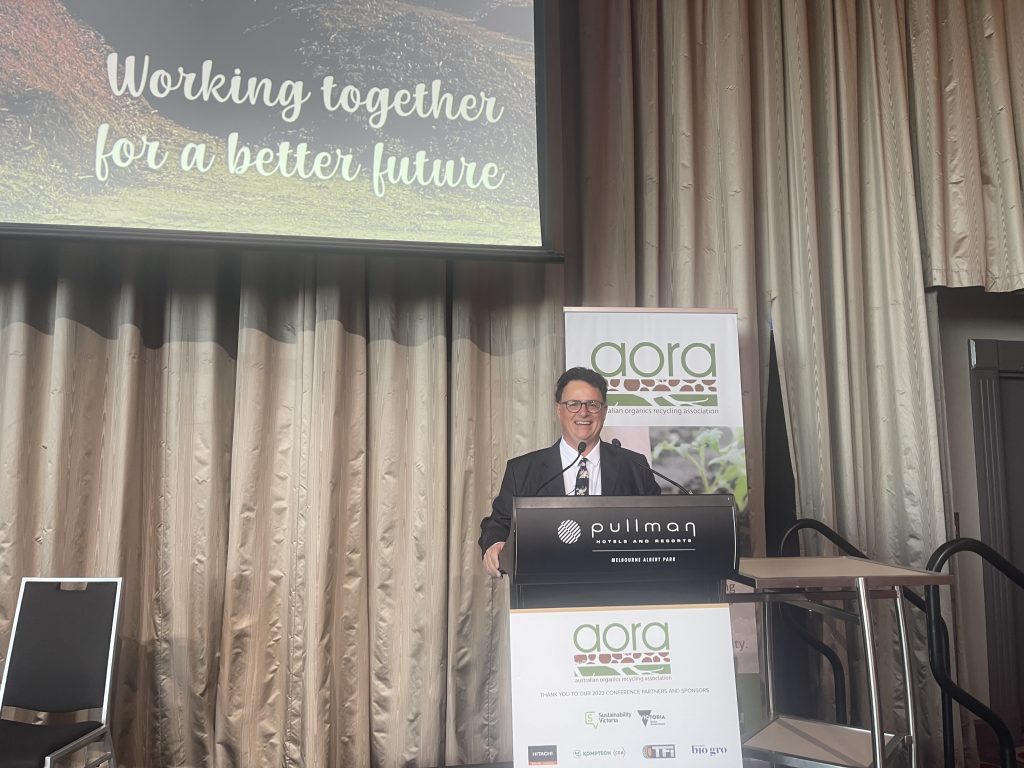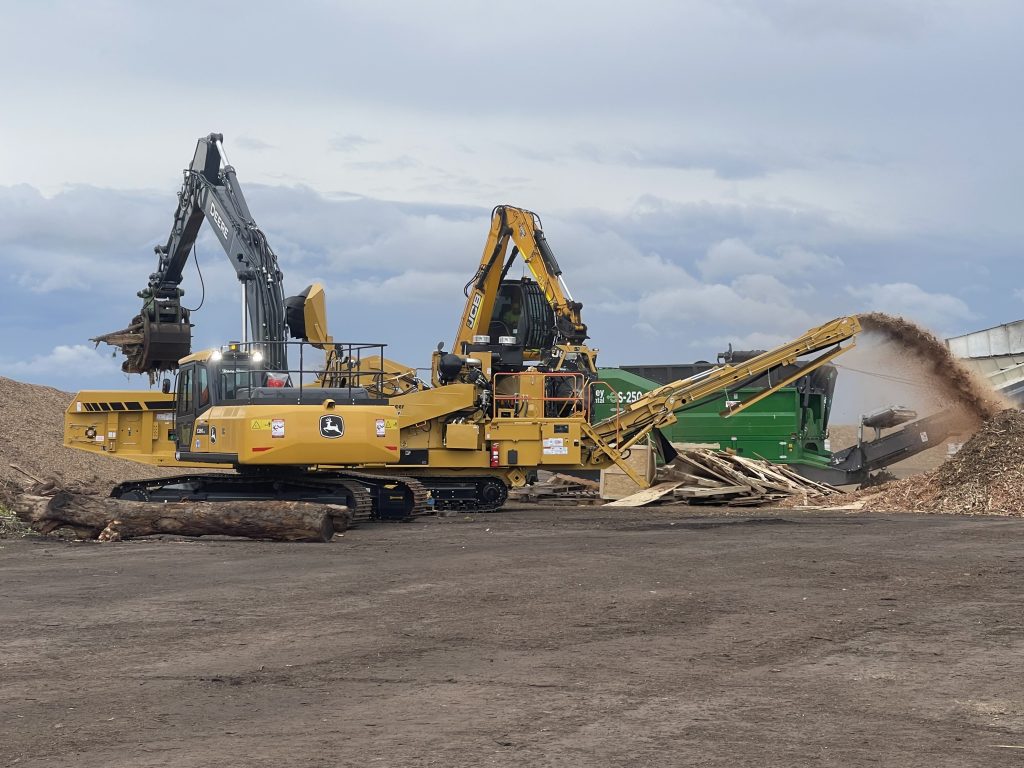The Sugar Industry on Show: The 2023 Australian Organics Recycling Association Conference
HCPSL PRESS RELEASE
The Herbert sugarcane industry was on show at the 10th AORA annual conference which was held in Melbourne between the 7-9 June 2023. The AORA Annual conference is the principal conference in Australia for the recycled organics industry. Each conference is a forum for education, discussion and networking related to Organics Recycling. Over 320 attended the conference from across Australia and overseas.
Did you know that the sugarcane industry is one of Australia’s largest producers of recycled organics. Australia’s raw sugar mills produce between 600,000 – 1,800,000 tonnes per annum of Mill mud and Ash (being 2-6% of the sugarcane supply). Sugar mills would stop production if this valuable waste streams were not removed frequently from site.
HCPSL Company Manager Lawrence Di Bella was invited to present at the conference as a Keynote Speaker on the topic- “Seizing the Opportunity-Learnings from the sugarcane industry.”
Over the 3 days presenters from industry, government, machinery suppliers, end users and scientists presented on a range of topics. Other keynote speakers who shared the stage with Lawrence was, Frank Franciosi- Executive Director, USA Composting Council and Compost Research and Education Foundation and the Hon. Penelope Wensley former Governor of Queensland, National Soils Advocate & Patron of the Australian Organics Recycling Association.

Lawrence discussed how the sugarcane industry utilises mill mud and ash products on farm, trials undertaken by HCPSL and its partners on biochar and green waste uses in sugarcane farming systems. The presentation covered off on logistics, crop response to these products, challenges and farmer extension activities undertaken to account for the nutrients from these products in a sugarcane system.
A field tour was conducted on the first day of the conference at the massive Repurpose It organic waste management business site on the out skirts of Melbourne. The field tour showcased machinery and technologies used by the recycled organics industry across the country, with companies showing their wears, with real live demonstrations.

A large 10t compost applicator used to remediate sodic soil in southern and western Victoria was on show at the field trip. Victorian farmers are using this type of implement to subsurface apply composts, gypsum, and lime at depths of 0.3-0.5m to manage sodicity, increase water holding capacity of soils and increase plant rooting depth leading to improvements in crop yields. Interesting some growers in Victoria are choosing to make significant investments in sub-surface soil remediation over purchasing additional high valued farming land in an attempt to vertically increase productivity of their already owned farms.


The second and third days of the conference were held at the Pullman Albert Park conference venue. Guest speakers covered some of the following topics:
- Managing food wastes and other organic waste streams
- Packaging without packaging
- Managing odour, heavy metals, plastics, and other pollutants
- Sub-soil amelioration in pasture and cropping systems
- Measuring soil microbial activity
- Regulation and environmental management
- Industry best management practice
The recycled organics industry is booming and will continue to boom as people seek to reduce their environmental footprint, we move to achieve net zero targets set, seek alternative nutrient sources, improve their soil health, and increase crop productivity. Those waste streams that used to end up in land fill are now making their way back into our communities and farms as repurposed products.
Give it some thought next time you throw that organic waste product in the rubbish bin, burn cane trash or dispose of that old timber pallet. Could that item be of value on my farm by improving my soil health, reducing my artificial fertiliser input or helping me increase my productivity. As fertiliser costs increase and our farming land ages after many years of cropping, we need to ask ourselves- “Are there other ways to improve my business?”


For more information concerning the conference or AORA, please go to: www.aora.com.au







